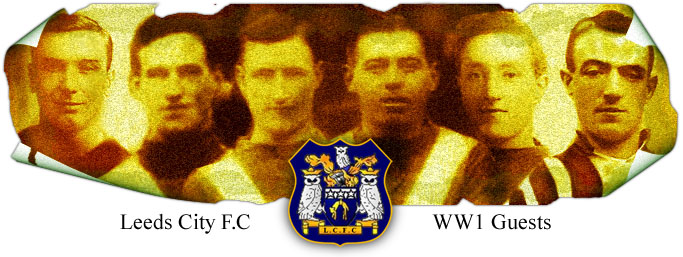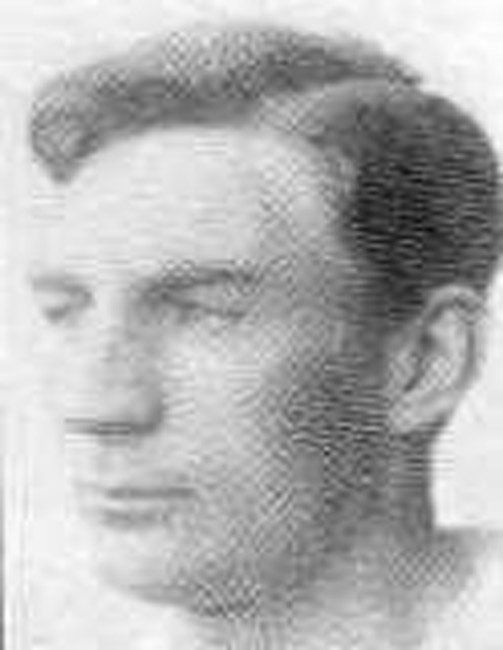

Booth: Curtis Thomas (Tommy)
1915-1916 (Leeds City War-time Guest Player Details)
Inside Forward
Born: Gateshead: 12-10-1891
Debut: v Stockport County (h): 17-04-1908
5’9 1/2” 11st 5lb (1923)
Booth started with Wallsend Elm Villa, joining Newcastle United as a professional in November 1913. He showed early promise with the Magpies, scoring twice in nineteen League appearances
before the suspension of official football following the outbreak of the First World War. Newcastle were one of a number of clubs who suspended operations during the conflict, and he threw his lot in
with Leeds City for the 1915-16 season, along with a number of St James Park colleagues. He was employed on Tyneside at the time, so there were constant worries that he would be able to get
away from work in time to play, but he managed eight appearances between November and March, making his debut in a goalless draw at Grimsby Town on 20th November 1915. Private 39691
Curtis Booth enlisted in the Durham Light Infantry on 8 December 1915 and subsequently underwent basic training before leaving for France in 1916. After seeing action on the Somme and at Third
Ypres, Booth was among the troops that helped stem the German advance at Villers-Bretonneux in August 1918. It was during the latter action that Booth, recently promoted to Corporal, was wounded.
Booth subsequently made a full recovered from his injuries and was finally discharged from the British Army on 28th August 1919. After the resumption of official football operations in 1919, Booth
returned to Newcastle, scoring four goals in fifteen games before joining Norwich City in September 1920 in a deal worth £800. He spent three years in the Third Division with Norwich, scoring eleven
goals in sixty-two appearances before taking over as captain and player-manager at Accrington Stanley in June 1923. It was the first time Accrington Stanley had made such an appointment. The former
Manager Sam Pilkington was to remain as Secretary, but just the administrative side, while Booth was to play as the club captain and be responsible for the Manager’s duties. In the very first game, at
Darlington, on 25th August 1923, Booth badly damaged his knee ligaments, and had to retire from the game as a player. He was unable to return to his duties with the club until the final months of the
season, and due to the financial strain on the club he was released in May 1924. After leaving Stanley, Booth was engaged in coaching in various parts of Europe. He left the United Kingdom to make a
living coaching abroad, spending time in Germany, Turkey, Egypt, France and the Netherlands. He died on 29 October 1949 in Amsterdam.
| War-time Guest Appearances | Goals |
| |
| Principal Tournament 7 | 0 |
| Subsidiary Tournament 1 | 0 |
| Total 8 | 0 |